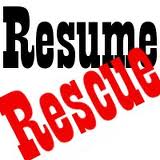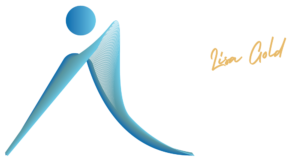Rescue Your Resume – Before It’s Too Late
 Rescued from what you ask? A HUGE and most common mistake! Thinking that your acting resume is nothing more than a compilation of all of your previous work is folly. Why? Because that's not how casting directors, agents, or anyone else in the industry view it.
Rescued from what you ask? A HUGE and most common mistake! Thinking that your acting resume is nothing more than a compilation of all of your previous work is folly. Why? Because that's not how casting directors, agents, or anyone else in the industry view it.
Yeah, I thought I might get a “huuuhhhhh?” on that one. Your resume is a living, breathing document that, at a glance, needs to tell agents, managers, casting directors and ultimately the creative team that will be hiring you, exactly what you’re capable of…now or in the immediate future!
Getting the right info on exactly how to position yourself for the roles you want can be tricky, but there is a strategy and system that works. The first step is to change your thinking. You need to look at your resume from the reader’s point of view and realize it is simply the marketing tool that gets you in more doors, garners more auditions, and identifies what you uniquely have to offer.
Every resume will be different of course so you’re going to have already done the work of determining what you are “selling”. Your resume (along with your headshots and media clips) are simply the “brochure” that gives the industry professional you want to attract, the “first look” to determine whether they want to “taste” (audition) the real thing in person.
Your talent agent knows that this is the same tool, the one you’ve created, that they will be using as well. The casting directors they submit to are looking for first and foremost a few things to connect to and you'll need to make these easy for them to find.
Psychologically the resume is a “mind map” – images for the reader that identify the roles you’re right for but haven’t played yet. Remember, they are looking to see if you’re a match to the future role and looking for evidence that you’ve done something similar or have the training and “industry proof” via other people that have hired you in the past. Everyone out there is reducing risk, valuing time, and need exactly what they need when they need it.
Your resume has to give them this info fast, clearly, and also create a big gut reaction that says “YES”. Because if it isn’t a “hell yes”, it’s a “hell no”!
Here are a few tips for you to apply to your resume today that will help you immensely:
- Do keep a separate electronic version 40K or less in a Word or PDF doc ONLY – even though you have it on your casting platforms.
- Do put your NAME in file title extension
- Do keep it easy to read, 3 columns, not 4 – forget those directors no one has ever heard of
- Do put degrees earned even if not in theater studies
- Do make sure it’s only 1 page
- Don’t reference any years or dates unless on casting platforms for commercials only.
- Don’t put credits no longer valid (like Annie when you were 10)
- Don’t put non-special skills (you must do this better than 90% of others)
- Don’t put your address on your resume
- Don't use funky or fancy fonts to stand out
Though we typically submit for representation with agents and managers and for specific casting opportunities through online casting sites, for now you’ll still need the old fashioned printable version that you can also email separately. Make sure these have the same credits and are consistent. Though some platforms limit you to the actual structure, try to keep the experience, people, and training the same. You may want to move credits of your focus to the top to make them easier to find quickly. The example here would be to put commercial credits at the top of the resume on Casting Networks, though you may only put “list upon request” on the pdf version.
I’m sure I’m ruffling a few feathers here and may even attract some contrary comments, but would love to hear your thoughts. I can tell you that actors who have employed some of these simple changes have seen fabulous results!












Leave a Reply
Want to join the discussion?Feel free to contribute!